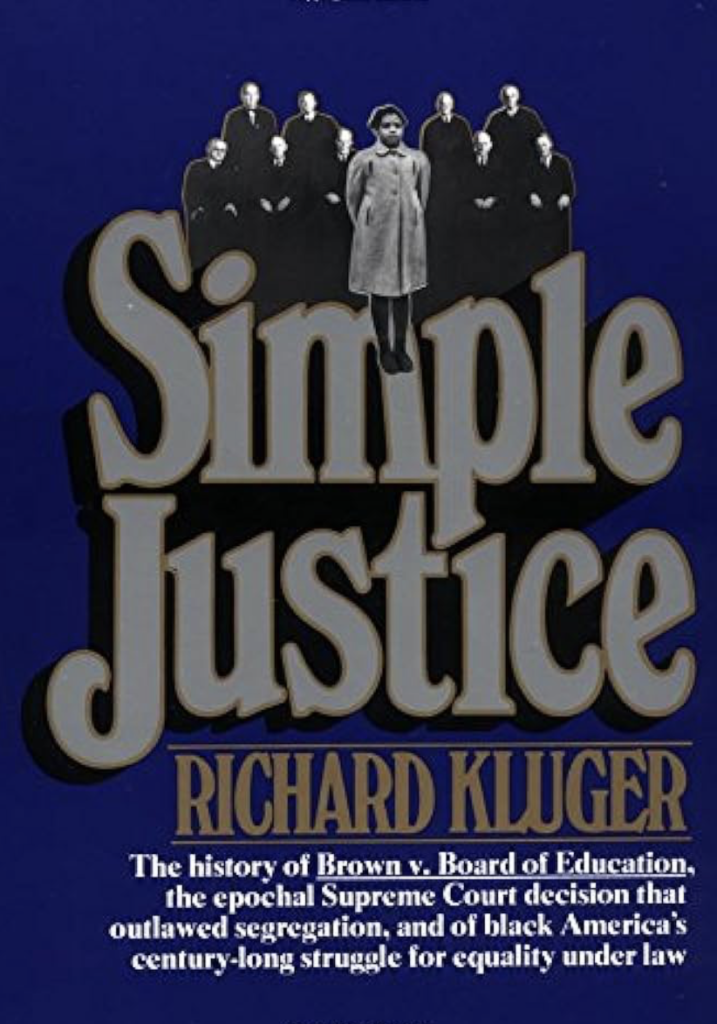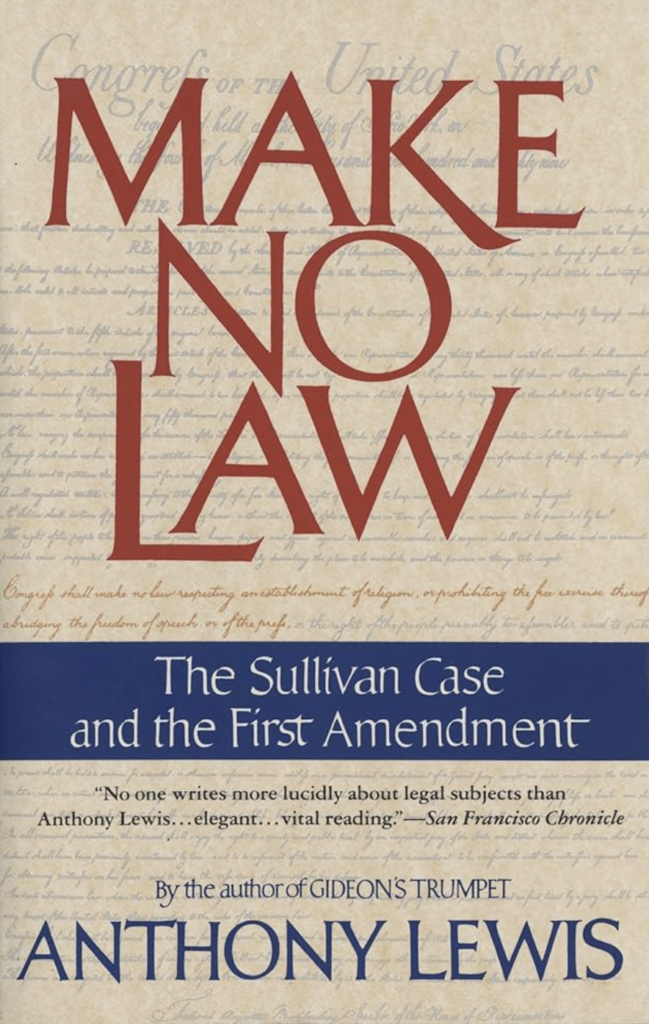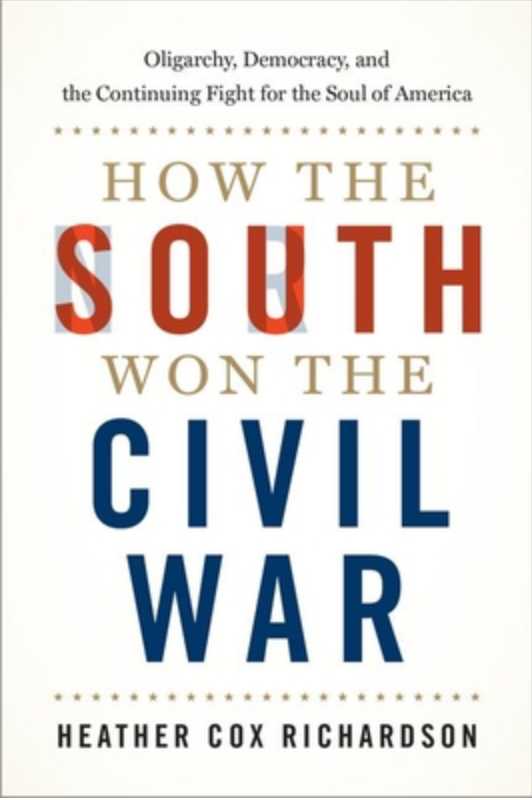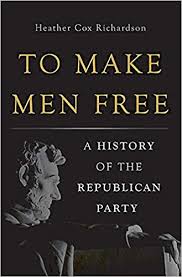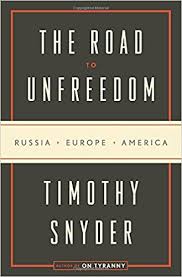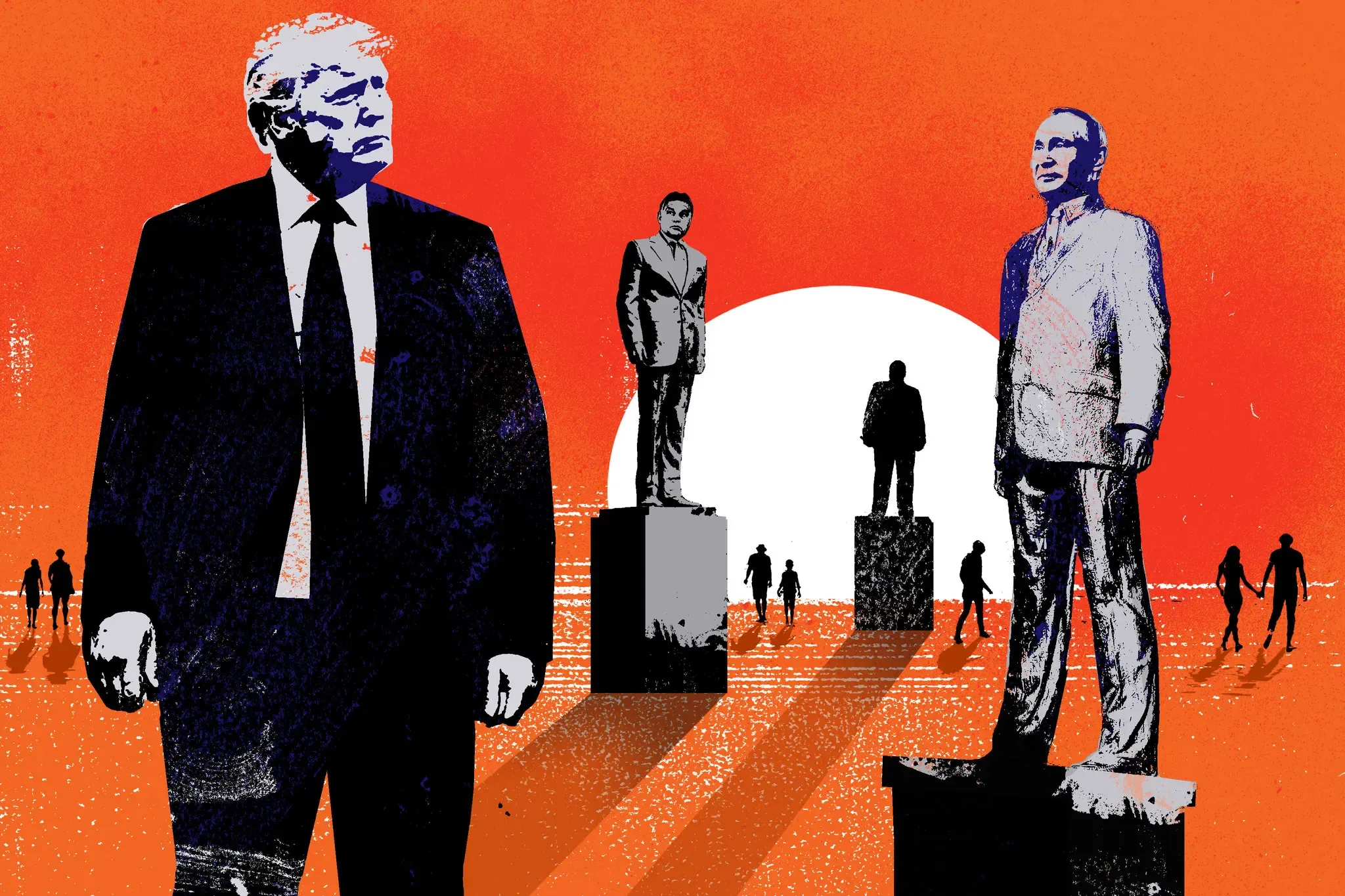*Published with the generous permission of Teri Kanefield. Read all of her writing here.
By Teri Kanefield
A Mastodon user said this:

I could fill a page with examples, but you get the idea. Yes, it’s scary.
Panic contributes to the spectacle
Timothy Snyder, in his book The Road to Unfreedom, explains that creating crisis and spectacle is the way modern oligarchs gain and maintain power. They do outrageous things to keep everyone spinning and lurching from one drama to another. The public is kept off balance, facts get lost in the noise, and eventually people wear out and stop paying attention.
Democratic leaders, when they go to work, try to implement policies that help their constituents. Oligarchs and would-be oligarchs can’t do that because the policies they implement benefit the oligarchs and hurt the common people. So instead of promising to improve the lives of the people, they promise to protect them from enemies.
Snyder calls it sadopopulism and it goes like this:
Modern oligarchs figured out that the safest enemies are invented ones. Real enemies might drop bombs on them. But if the enemy is a poor migrant immigrant, they’re safe.
That’s what Trump is doing in all of these comments:
You can see sadopopulism in action with the House Republicans. Their policies hurt their constituents, so in office, they put on a show, the way a magician distracts while he pulls off a deception. “Look over here! Watch us rile the libs. We’re going after the Biden ‘crime family’!” (Meanwhile, they are enacting policies that hurt their constituents.)
DeSantis complained that Trump’s criminal indictments are helping him in the primaries because they “suck out a lot of oxygen.”
Republican primary voters are so riled about the indictments (“Witch hunt! Election interference! They’re going after Trump because they know he will win!”) that none of the other Republicans can compete.
The problem for Republican candidates for president is that Trump is a master spectacle-creator who outshines the others. Nobody does crisis and spectacle like Trump. He’s a natural.
Hardcore Trump supporters love the show. A CNN poll showed that 43% of Republicans were more likely to vote for Trump after he made the “poisoning the blood” comment, and 23% less likely. In fact, they’re there for the show. The day-to-day business of governing is dull but landing blows on the enemy is thrilling.
When you panic, you are performing your part in the play. The play has four acts:
It also works like this:
Panic Helps Bury the Facts
Consider what happened with the Mueller Report. The Mueller Report exposed devastating facts about Trump. But because the Mueller Report didn’t result in Trump being hauled off to jail, Trump critics were frustrated and angry, which led everyone to the conclusion that the Mueller Report was a nothingburger. The devastating facts were considered unimportant and ignored.
The show fizzled.
The correct response to the Mueller report was: Look at all of these devastating facts 🤓. Instead, the response was MUELLER FAILED BECAUSE TRUMP WASN’T HAULED OFF TO JAIL. Does anyone even remember now what those devastating facts were?
Nope, they have been buried and forgotten.
It looks like the same mistakes will be made with the Trump investigations. Instead of saying, “Wow, look at what facts are being uncovered,” there are still partisan pundits shouting, “IT’S ALL GARLAND’S FAULT FOR SLOW-WALKING THE INVESTIGATION FOR A FULL YEAR” and then millions of viewers go off into an outraged spin over something invented. Facts get lost in an avalanche of rage-inducing nonsense. (Yes, it’s still happening. Larry Tribe is at it again.)
(If you think Garland slow-walked the investigation, click here and start reading.)
Also, shouting, “The DOJ didn’t do this in time for the election!” makes it sound like the value of the prosecution is that it went after our political enemies. Stop to think about whether that’s a good idea.
Spreading Panic Alienates People who are pro-Democracy
In Wrong: How Media, Politics, and Identity Drive our Appetite for Misinformation, Young talks about how the fracturing of media has driven people into highly partisan information ecosystems that become increasinly frantic, with people repeating each other’s rage-inducing simplifications. (The phrase “rage-inducing simplification” is mine, not Young’s.)
The constant rage and hysteria causes a large portion of the population to tune it out, which is no surprise. Democracy and rule of law are supposed to look like this: 🤔 and ⚖️ . Voters weigh policy options. It’s boring.
Fascism looks like this: 💣 and 🔥. It’s thrilling! We are fighting the enemy!
People who are, by nature, pro-rule of law and pro-democracy cannot tolerate too much 🔥. They want 🤔 and ⚖️ . Therefore, if the entire public sphere is filled with rage, fury, and panic, they will tune out.
The way to make sure Trump loses the election is not to spread panic because people who can’t tolerate all the crisis and spectacle will stop listening. The way to do it is the old-fashioned way. Talk to people about issues that matter to them. Do they care about the right to choose? Make sure they know that women are being prosecuted for having abortions and some women are having their health endangered by being denied medically-necessary abortions. Do they care about the environment? Talk to them about Republican policies about the environment. Do they care about economic fairness? Talk to them about the implications of Republicans tax policies.
Panic is Draining and Leads to Burn Out
No one can do the work necessary to save democracy if they’re worn out from all the panic. Susan B. Anthony, Thurgood Marshall, and Pauli Murray didn’t panic when they saw the injustice around them. They got to work. (To find out what you can do to help with the next election, click here.)
Panic (like shock) comes from faulty thinking
Part of the faulty thinking goes like this: “All was going well until Trump appeared and now we are in trouble!” The faulty thinking comes from the idea that nothing like this has ever happened or would ever happen in the United States. (If you think the United States has never had an autocratic regime, think about what life was like for a Black woman in 1850.)
The heros of the past have brought us a long way, but there is always more work to do, and democracy is always fragile.
The Antidote to Panic is Knowledge and Perspective
The better we understand the current political situation in the context of American history, the better able we are to understand how to move forward. History teaches us possibilities.
Here are a few suggestions (I posted this list previously):
